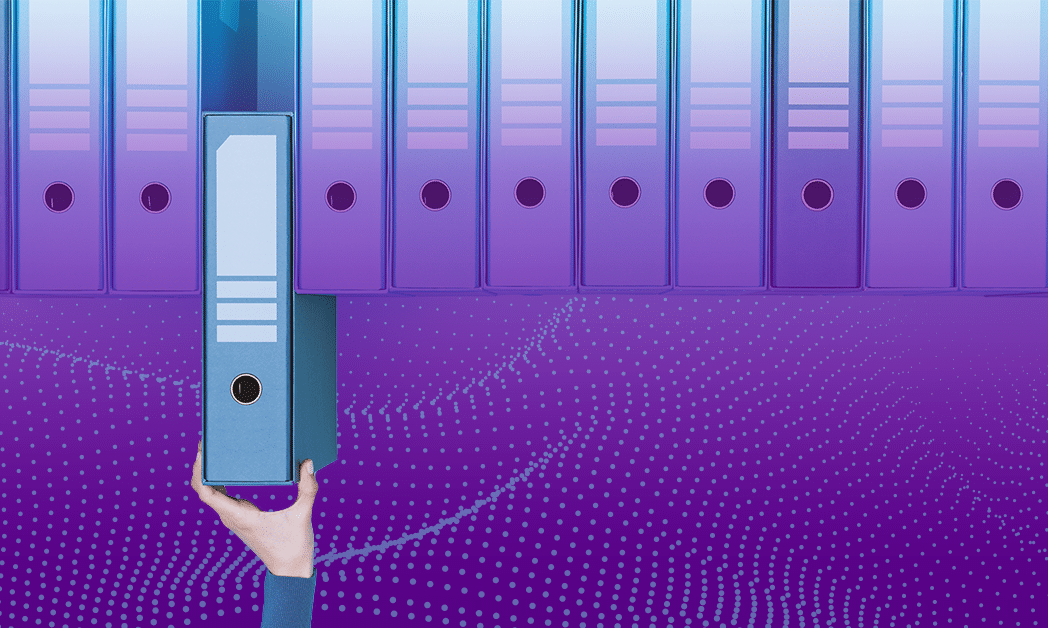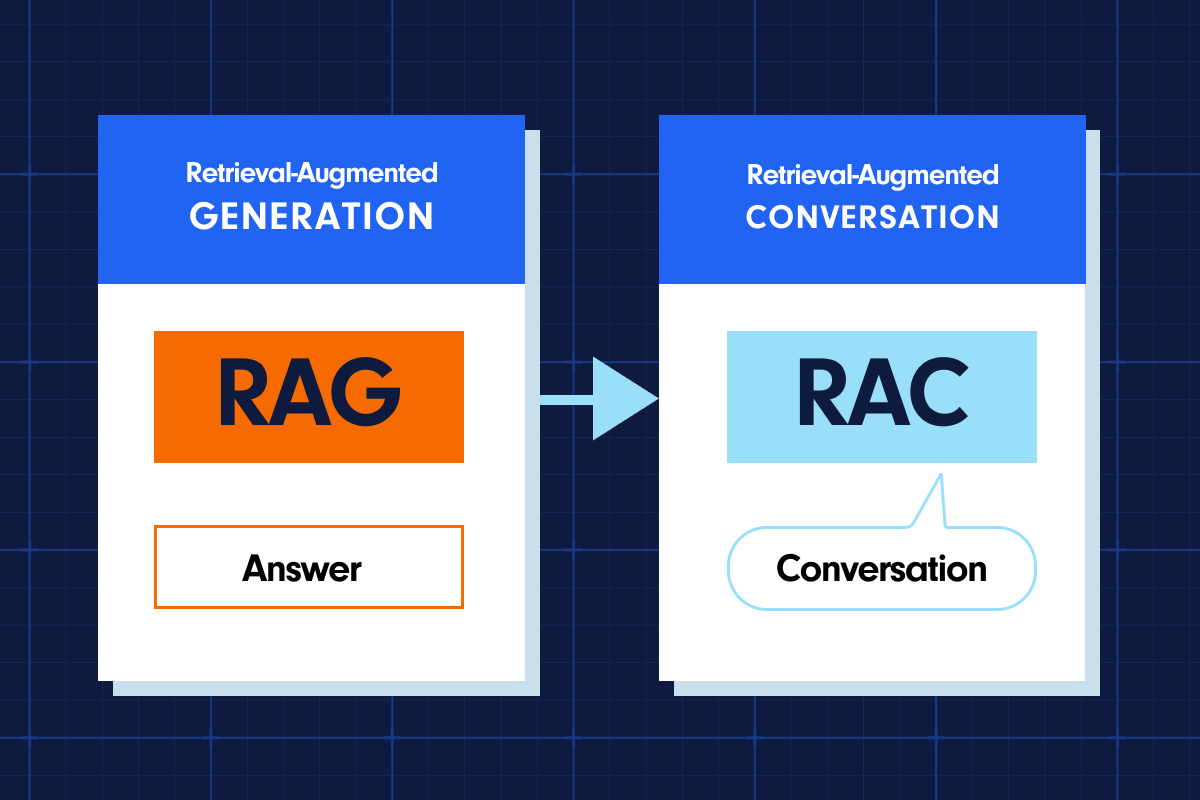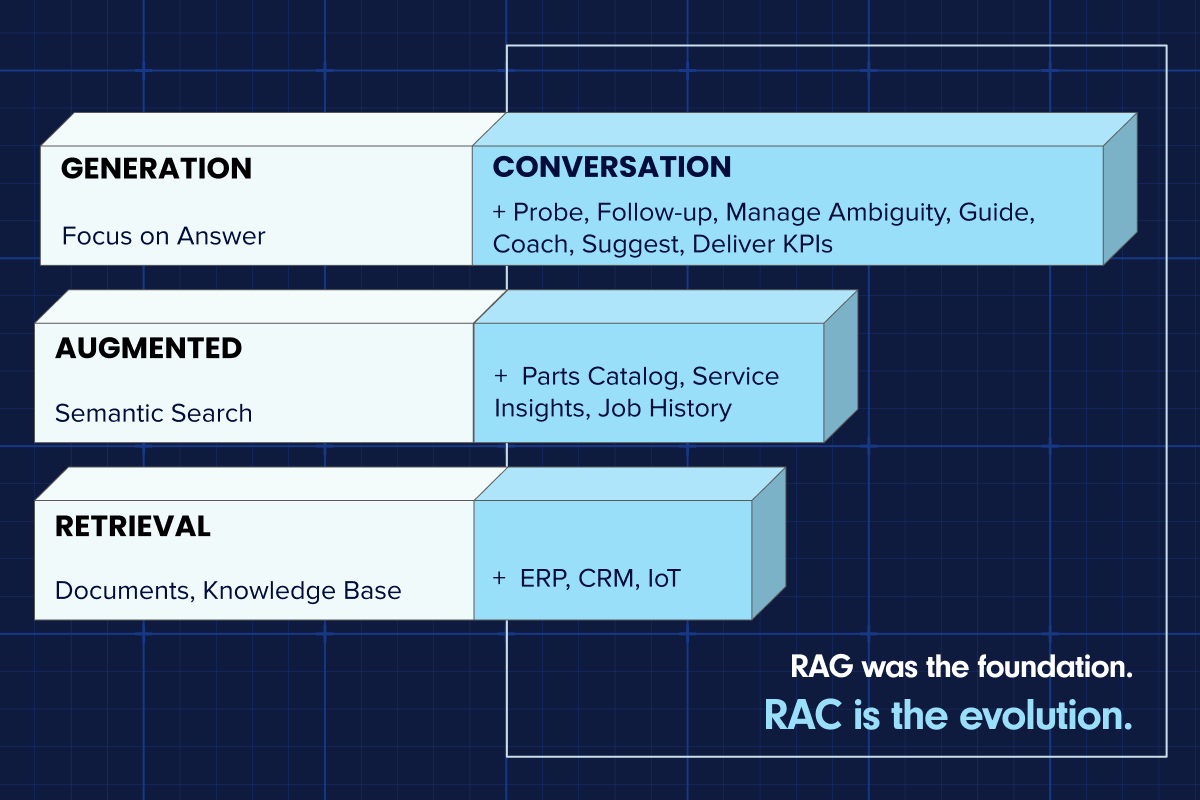Here’s Why AI-Powered Tech is The Key to Empowering Service Pros at All Skill Levels
The goals of enterprise-wide knowledge management systems (KMS) are noble. Collect and store institutional knowledge, distribute that information, enable internal learning and foster collaboration. But it also sounds a little stale and outdated, right?
Factsheets for KM tools read as if they were written by 19th-century schoolmasters whose main goal was to instill rote memorization instead of fostering critical problem-solving.
Today’s leading service organizations operate at a speed and agility that would make Victorian heads spin. Artificial intelligence systems, which mine information in real-time from varied sources, including multiple databases and technician notes, turn tribal knowledge into easily accessible information for the entire team. As the most experienced service technicians reach retirement age, this approach becomes more critical than ever in bridging the skill gap with new technicians.
Compared to knowledge management systems, smart AI tools are a more cost-effective solution for professional learning that can be quickly implemented and will never go stale.
Why Knowledge Management Systems Fail?
Service Organizations Typically Outgrow Traditional KMS
Today, organizations face complex challenges that aren’t easily addressed by basic questions and answers stored in a static database. Managers and technicians need to orchestrate hundreds of moving pieces in a complex puzzle, which include:
- Navigating shifting priorities and ever-changing factors that impact asset performance like weather, location, and more
- Addressing service issues that range from simple fixes to major breakdowns
- Solving the parts problem – which first requires an accurate diagnosis, and then the ability to locate the right parts
- Keeping pace with the innovation and evolution of the supply chain for complex products
- Optimizing speed, accuracy, and costs to resolve issues in the most efficient method possible
Challenges of Knowledge Management Systems
One problem with traditional KMS is that it is an arduous effort involving multiple stakeholders and the tedious building of multiple knowledge trees. Often, subject matter experts (SMEs) are taken out of the field for weeks at a time in an attempt to commit their knowledge to paper. And by the time the effort is complete, the knowledge is all out of date anyway.
Beyond that, traditional knowledge bases record and store information in an encyclopedic way. And to access that information you need to deliberately search using specific terms and phrases if you want to find the right answer.
They are of little help to a customer support service pro who is trying to actively learn complex skills on the fly, that’s because it’s hard to find the right answer if you don’t already know what you’re looking for.
Ready for a Knowledge Management System Alternative?
Choose Technology That Understands Intent!
To better transfer institutional knowledge, it’s critical to collect and distribute knowledge in an intuitive way that mimics the way customers and employees think and react. The key is understanding what parts of a job are vital for each task, and how to best impart the wisdom of experts to the entire service team – from soft skills to technical expertise.
Think about your standout employees with years’ worth of deep industry and customer knowledge that rarely makes it into handbooks. Your experts didn’t just memorize machine and parts information. Instead, they became curious problem solvers who know how to ask the right questions to get to the heart of the problem. How can you ensure those skills don’t leave when they do?
Often this means asking a variety of questions in multiple ways to piece together information from customers and machine error messages to systematically work out challenges. And this is where traditional knowledge management technology falls short.
It’s easy to create a database full of simple questions and answers, but that’s not how service organizations operate. Instead, they must untangle multi-layer processes to connect the dots and do so in a cost-effective way. To best capture and transfer this info, what’s needed is a technology that understands intent, regardless of the choice of words or phrases used.
AI Is The Future of the World
AI Enables Knowledge Transfer in a Matter of Days
If you want your service organization to function like your best experts, you need to provide the entire team, from customer support to service techs in the field, with the same kind of information as your most tenured pros.
AI can’t read the minds of your experts, but it can analyze and solve problems in a similar way. Aquant’s technology learns your organization’s service language through interpreting data from multiple sources and silos. It analyzes your service problems and maps out the most likely solutions, no matter how complex. It enables your seasoned pros to quickly assess and optimize the findings. It then turns all that data into actionable insights in only days.
Finally, it delivers those recommendations in an easy-to-use interface that enables your pros to diagnose the root cause of every issue with just a couple of questions. The system analyzes your case data in real-time, so you never have to refresh it. Everyone across the team has access, and the tool learns over time, ensuring your pros can make accurate critical decisions, regardless of skill and tenure.
Contact us to see how we can start streamlining your processes and increase efficiencies on your team today.








